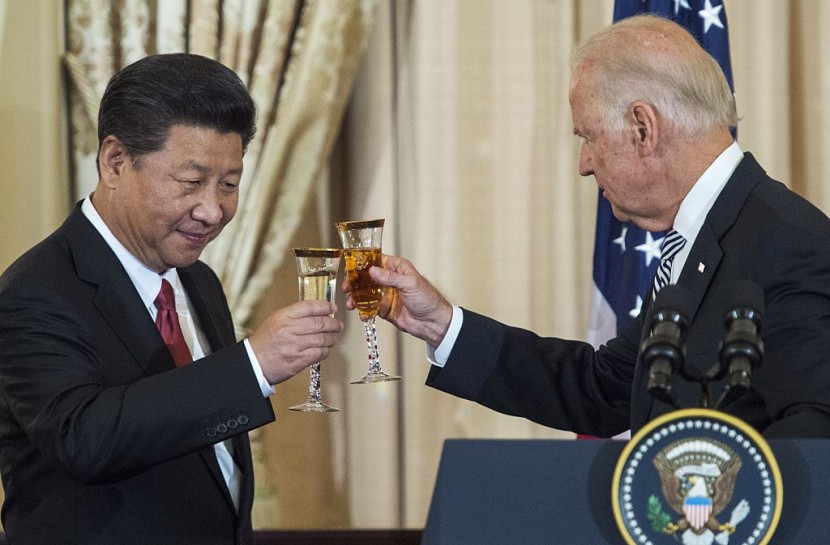In a phone call with Chinese Foreign Minister Wang Yi on Friday, US Secretary of State Antony Blinken voiced worry about China's persistent pressure on Taiwan, as the two nations prepare for a highly anticipated virtual meeting between their leaders.

Some Roots of Tensions Between the Two Giant Countries
In a recently published article in The Guardian, China's repeated cyber-attacks, profound conflicts over human rights in Xinjiang, Hong Kong, and Tibet, as well as persisting commercial disagreements, have all contributed to the continuous deterioration of ties.
The United States condemns China's blocking of multinational inquiries into the origins of the COVID-19 outbreak and is enraged by Chinese government pressure on US firms to persuade Congress to repeal laws that Beijing opposes.
Meanwhile, the People's Liberation Army performed the latest in a series of military preparedness drills off the coast of Taiwan on Tuesday while the two countries' top diplomats exchanged warnings about the island in a phone call on Saturday, according to a report published in Remo News.
Read Also : Biden, Xi Jinping Hold First Call After 7 Months; Both Leaders Discuss Areas Where Their Interests Converge
What to Expect in the Virtual Meeting
The summit's expectations have been set low. There is unlikely to be a joint statement, and the White House has said that Biden would not take questions from the press until the negotiations are over.
Scott Moore, director of China programs and strategic initiatives at the University of Pennsylvania, said that, overall, the expectation of convergence in both Washington and Beijing has died. Rather, the connection has evolved into a transactional one, according to a report published in CBS58.
He also explained that with the midterm elections coming next year, Biden faces electoral hurdles at home. As a result, he will very certainly suffer political repercussions if he takes any acts that may be seen as substantial concessions to China.
On the other hand, the economic front is where Xi's greatest weakness lies. That is why Beijing has shown an interest in making trade advances. Officials in the Biden administration have recently shown interest in discussing these topics although there are likely to be considerable political obstacles.
Monday's Virtual Summit Is a Pivotal Event
According to Wang, Monday's meeting is a potential key occasion in attempts to improve bilateral ties' trajectory. The two sides should meet midway, guaranteeing a smooth and successful summit and re-establishing Sino-US ties on a path of healthy and steady growth.
Beijing is worried, according to Bonnie Glaser, head of the Asia Program at the German Marshall Fund of the United States, that the Biden administration is adhering to its one-China policy. They want further assurances from the US on what it will and will not do with Taiwan.
Meanwhile, the US side will seek more regular meetings between the military and diplomatic institutions, but Xi is likely to oppose any move that he perceives as normalizing the US presence in China's close vicinity most especially in Taiwan.
In terms of nuclear weapons control, China has so far refused any efforts to engage in bilateral discussions, as well as Donald Trump's attempts to initiate trilateral talks with Russia.
© 2026 HNGN, All rights reserved. Do not reproduce without permission.








